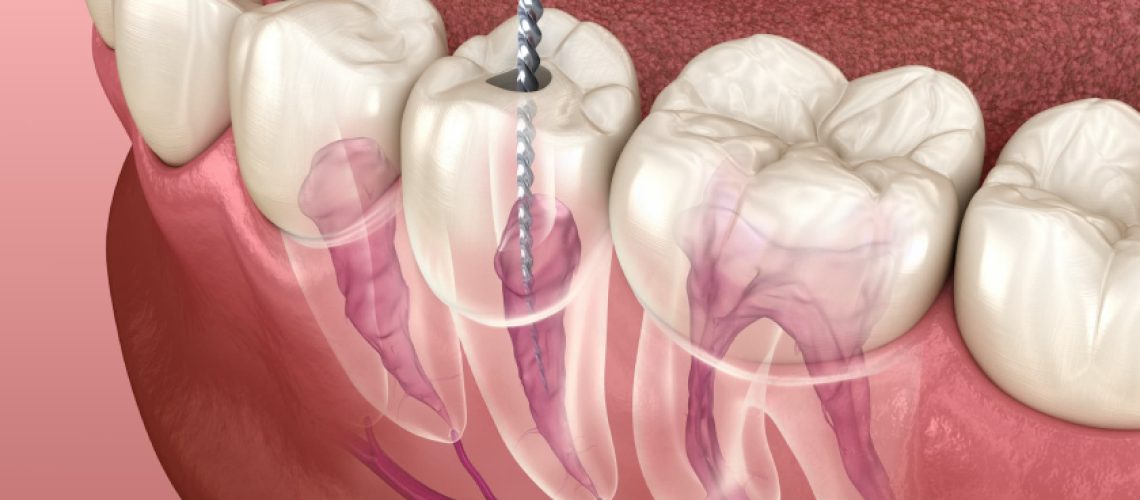If you know someone who has had a root canal, they probably weren’t exactly excited when they told you about it. Root canals aren’t fun, but they’re much better than dealing with the problems that lead to them.
Your dentist will look for these signs during your regular dental checkup and cleaning and in case of a dental emergency. There are a few different reasons why you might need a root canal soon and a few signs that you might.
Structure Of Your Teeth
Your enamel is a hard, mineral-rich material that keeps your teeth safe from heat, acid, and pressure. Bacteria in your mouth feed on sugars and carbs to make a living film (plaque) on your teeth.
They leave behind acidic waste that eats away at your teeth, so getting rid of plaque is the best way to stop tooth decay. But rampant tooth decay eats through the enamel and into the dentin.
Dentin is a softer substance with open passageways (called tubules) that lead to the tooth’s pulp chamber. These tubules carry nutrients away from the pulp chamber and let heat and pressure stimulate the nerve endings in the pulp chamber.
When decay in the dentin goes through the dentin and into the pulp chamber in the middle of the tooth, the soft tissue can get sick. There are important veins that come up through the roots from the jaw and depend on a healthy pulp chamber.
What Does a Tooth’s Pulp Chamber Do?
When this area is damaged, you might need a root canal. The pulp chamber contains nerve endings and blood vessels, which can carry bacteria from infection to the blood vessels at the roots of your tooth. When these nerves and blood vessels don’t get enough blood flow, they can die from physical damage.
The pulp chamber lets your brain know when chewing something is too hard or too hot. But infection or injury can cause problems here quickly.
1. Spontaneous pain
The key word here is “spontaneous.” Let’s say you have a tooth that starts giving you a lot of pain out of the blue for no apparent reason.
This is a big sign because you need a root canal when a tooth has decayed to the point where the nerve inside the tooth is exposed. Even a tiny bit of exposure can cause a lot of pain. The pain can be mild, moderate, or severe. It can also feel different when you sit, bend over, stand up, etc. If you have sudden, severe tooth pain, you should immediately call your dentist or an endodontist.
2. Discoloration Of The Teeth
When a tooth dies, it becomes a place where bacteria can grow. The decay of a dead pulp chamber is likely to cause an infection, and a root canal is the only sure way to get rid of it. A tooth that looks gray or black is most likely dead.
If you get hurt in your mouth, the blood vessels in your tooth’s pulp chamber can sometimes break. If you hit your tooth and can see it getting darker, you may want to call your dentist and tell them it’s an emergency.
3. A Severely Damaged Tooth
We expect more dental emergencies than just teeth that are getting darker. We get calls sometimes about broken teeth. A chipped tooth or even a knocked-out tooth can be easily fixed by a dentist who acts quickly. When this physical damage happens, the tooth’s center is not hurt. We can bond on a broken piece or put a missing tooth back in place.
But suppose a tooth is cracked open, and the pulp chamber is exposed to saliva. In that case, it is a sure way to get an infection by replacing the broken pulp chamber with a filling and, depending on the damage’s bad, maybe a dental crown, a root canal saves time and a lot of pain in the long run.
A tiny crack in the root of a tooth can sometimes cause the same pain and discomfort, but it’s harder to notice, and most people don’t think of it as an emergency. You might need a root canal.
4.Pus Out of an Infected Tooth
Because the pulp is involved, a tooth with a bacterial infection can cause severe, excruciating pain. The infection can spread to other mouth parts, forming intraoral and extraoral draining sinuses.
5.Sensitive Teeth That Hurts A Lot
It can be hard to tell the difference between tooth pain and tooth sensitivity. But if your tooth suddenly becomes sensitive to hot and cold foods, you may need a root canal. When your tooth’s pulp chamber is infected, the nerves in the pulp chamber can overreact to heat, which can last for a long time.
Conclusion
It’s best to let a professional figure out these warning signs, and your dentist will always look at all your options before agreeing to something as serious as a root canal. But root canals work by removing tissue that can’t help you anymore. If you take care of it, your daily life will be better. If you have these symptoms, make an appointment today at Serine Dental Colleyville and we’ll be happy to help.

